August of 2022
The Kraken Special Unit (Part VII)

On 5 August 2022, in a post to his Telegram channel, Konstantin Nemichev acknowledged the receipt of 800 applications from people who wished to join the Kraken Special Unit. The organization, he added, would start processing this paperwork on the following day, with a view to choosing people to attend the recruit training course, ‘where the instructors will select the best among you’.
After ten days of ‘Telegram silence’, Mr. Nemichev posted two notes to his feed. The first, which included a picture of him donating blood, advertised a drive to replenish the exhausted stocks of the Kharkiv Blood Center. The second announced a raffle to raise funds for the purchase of robot quadcopters for the Kraken Special Unit. (The latter included several pictures of the prize that the winner would receive, a ‘tactical’ stretch limousine bearing, among other decorations, the logo of the Kraken organization. The text mentioned that the drones purchased would be of a particular model built by the Chinese company DJI - the Matrice 300 RTK.) (The first link in this paragraph will take you to an article about the lottery that was published by the Kharkiv Times. The second connects the website of DJI.)
On 18 August 2022, Nemichev announced both the winner of the lottery and the amount of money earned. Unfortunately, the receipts, in the sum of 340,000 hryvni, amounted to less than the cost of single drone of the desired type. (In August of 2022, 340,000 Hryvni could be exchanged 9,300 US dollars, and thus somewhat less than ten thousand or dollars needed to buy a single Matrice 300 RTK quadcopter.)
Two days later, Nemichev posted a request for donations that included a list of items that he wished to buy. While this list included quadcopters, a drone of the model specified, the DJI Mavic 3, could be obtained for a third (or so) of the price of the Matrice 300 RTK.
On 22 August 2022, Nemichev gave a remote interview to a television news program. In the course of a brief discussion with the presenter, he explained that the Russians found themselves faced with ‘Hobson’s choice’.1 If they failed to reinforce their forces in the region of Kherson, they risked losing the city of the same name. The forces available to do this, however, were also needed to defend the Donbas region.
On the 368th anniversary of the founding of the city of Kharkiv (24 August 2022), Nemichev reminded subscribers to his telegram channel that the Russian authorities had included the two founders of the Kraken organization, field commander Serhiy ‘Chili’ Velichko and himself, in a list of ‘ten especially dangerous criminals’. On 26 August 2022, in an appearance on a television news program, Nemichev argued that he and ‘Chili’ had been placed on this list because of the role that the predecessor of the Kraken Special Unit (Regional Defense Unit ‘Azov’) had played in preventing a Russian takeover of the city of Kharkiv on 27 February 2022.
In the early days of the invasion, we took up a position on the district and did not allow the enemy to enter the city. Therefore, I believe that we still broke some of Putin's plans and became his personal enemies, because he thought that his army would be met in Kharkiv by grandmothers with flowers, but they were met by volunteers with machine guns.On 1 September 2022, Nemichev joined recent graduates of School 134 for a photoshoot in front of the burnt-out remains of the building that had previously housed that institution. (In the aforementioned battle of 27 February 2022, the Russian soldiers who had been ambushed by members of the Regional Defense Unit ‘Azov’ had made their last stand in that building.) 2
On 3 September 2022, Nemichev announced delivery of six DJI Mavic 3 quadcopters and a ground controller for drones of that type. In addition to showcasing the boxes in which these items had been delivered, the notice mentioned that the winner of the raffle held to raise the funds needed to buy the drones had returned the ‘tactical’ stretch limousine that he had won to the Kraken Special Unit.
For a brief description of the battle of 27 February 2022:
For other articles in this series:
For other articles about the war in Ukraine:
To share, support, or subscribe:
Students of language and culture may find it interesting that Nemichev used the phrase ‘Morton’s Fork’ [Вилка Мортона = vylka Mortona], which refers to an English churchman of the fifteenth century who served as both archbishop of Canterbury and lord chancellor of England. Marvelous to say, this expression, which is largely forgotten in the land of its birth, seems to be popular among speakers of Ukrainian, Russian, and Bulgarian.



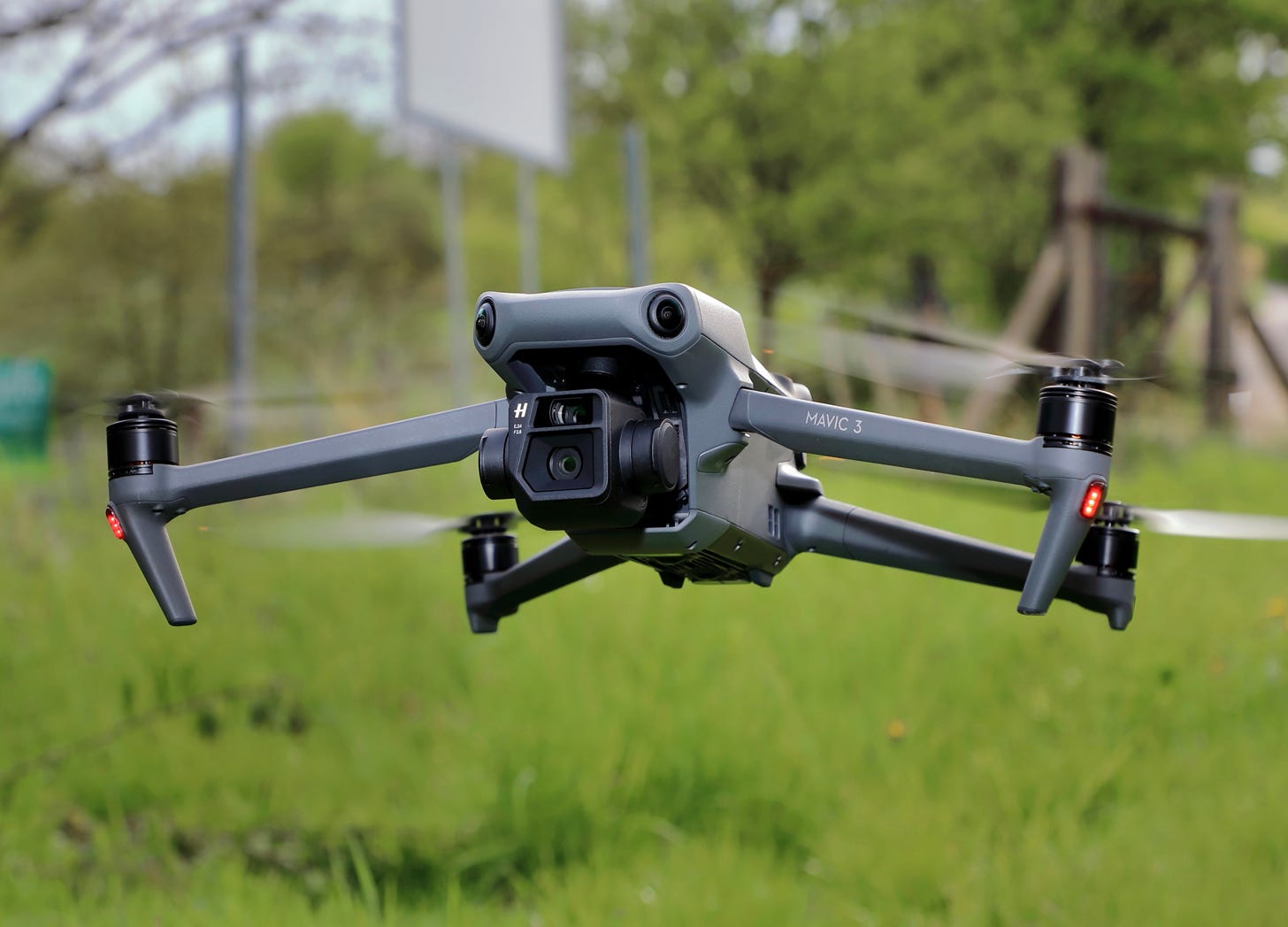
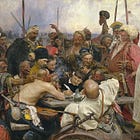
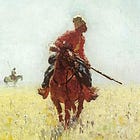
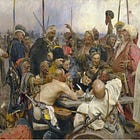
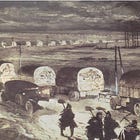
Interesting. Morton’s Fork is similar to, but not identical to, Hobson’s choice.
A Morton's fork is a type of false dilemma in which contradictory observations lead to the same conclusion. Its name dates back to the rationalising of a benevolence by the 15th century English prelate John Morton.
The earliest known use of the term dates from the mid-19th century .
Dilemma
Under Henry VII, John Morton was made archbishop of Canterbury in 1486 and Lord Chancellor in 1487. He rationalised requiring the payment of a benevolence (tax) to King Henry by reasoning that someone living modestly must be saving money, and therefore could afford the benevolence, whereas someone living extravagantly was obviously rich, and therefore could also afford the benevolence.